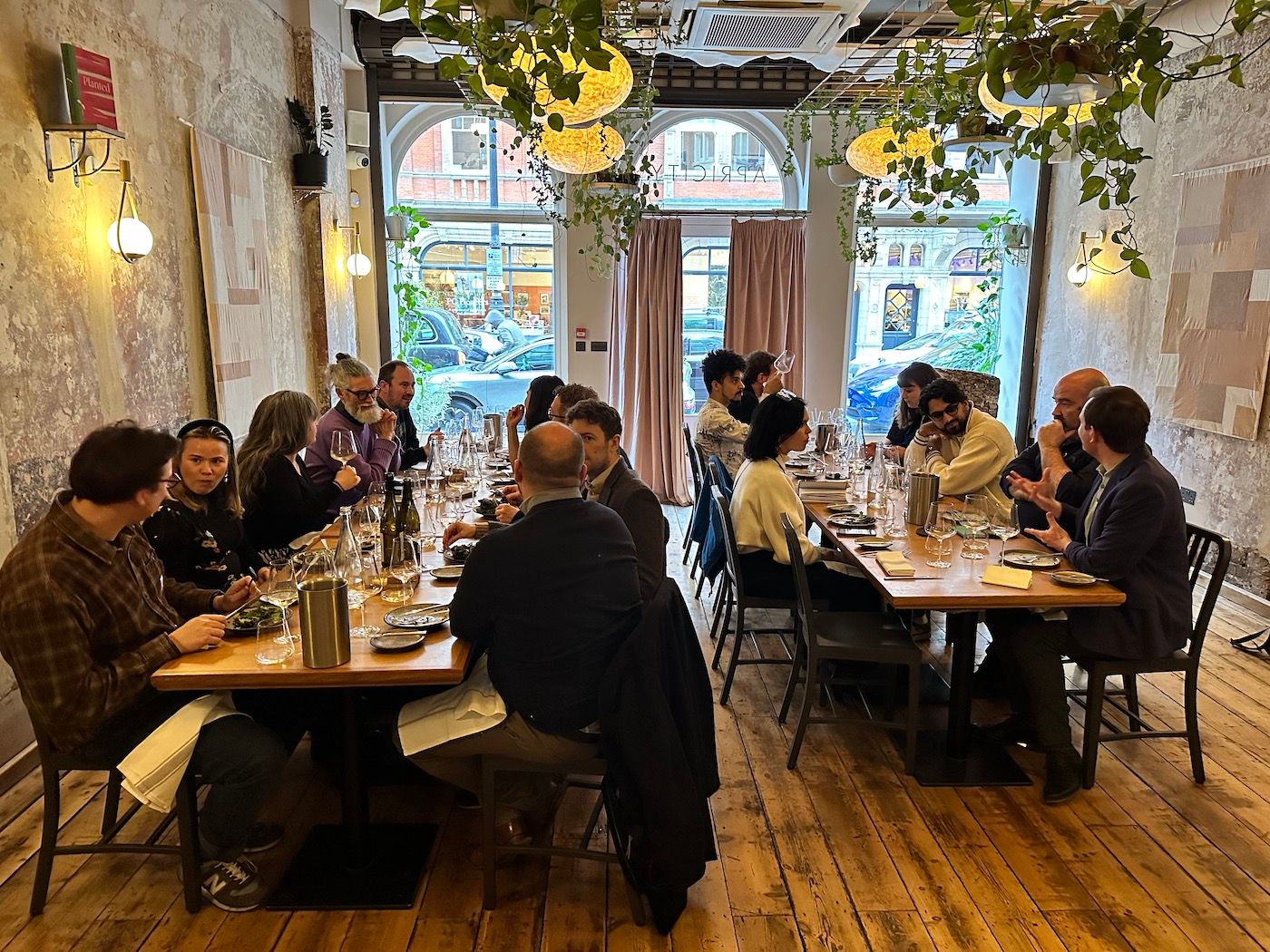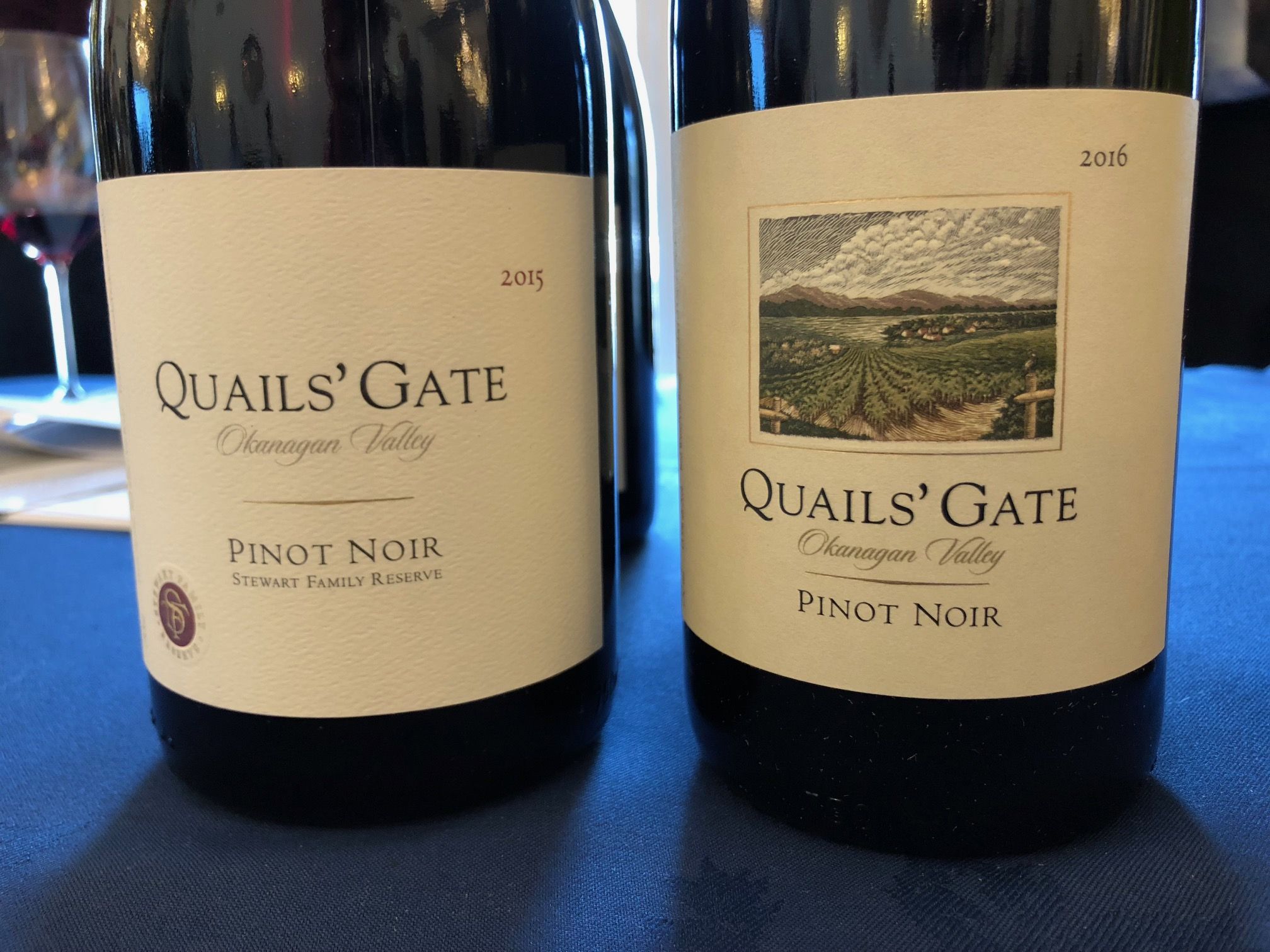“Oddbird wants to change the world and I think it really stands a chance,” writes Kermode.
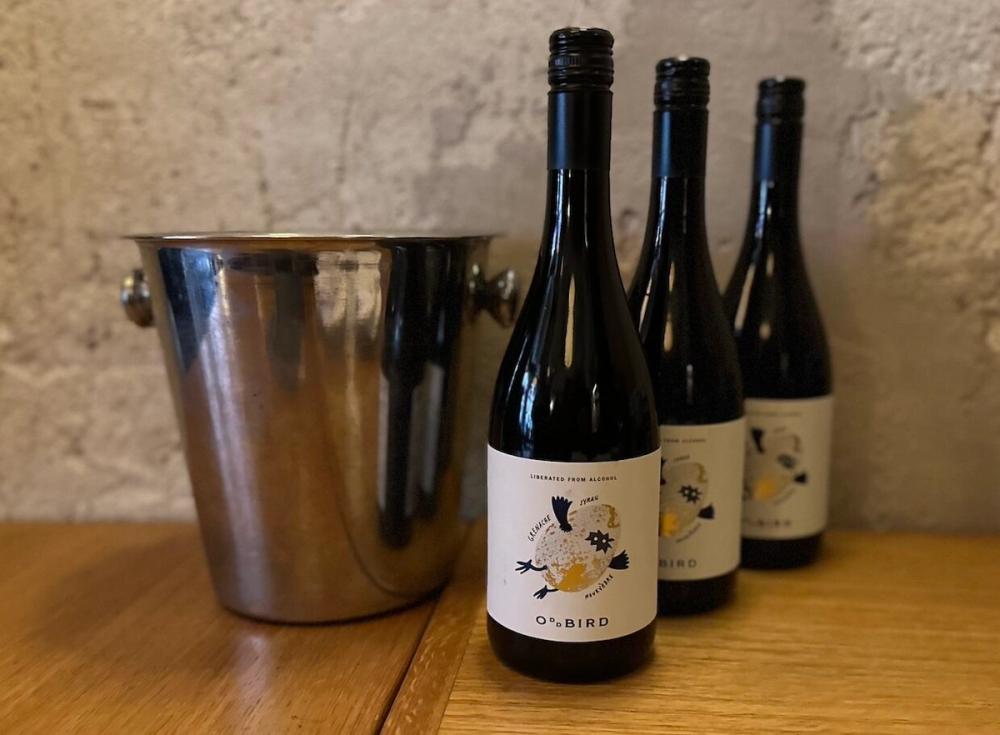
Sommelier-turned-wine-consultant, Bert Blaize, is now an official ambassador for Oddbird
The world of ‘low and no’ has changed beyond recognition and at rapid pace.
Once upon a time, a beer meant a can of Barbican, a non-alcoholic G&T was just a gin-less glass of tonic and wine lovers made do with a glass of Schloer … but not anymore.
Powered by ambitious start-ups, followed by established drinks giants eyeing a growing market, consumer demand has fueled a race, with beer in pole position and spirits catching up fast, while wine has been seemingly stuck in the pits.
It is big business: the no/low sector now commands a share of around 3% of the UK’s total alcoholic beverage market (which excludes soft drinks, but includes substitutes for alcoholic ones), according to an analysis by the IWSR, with ‘no’ overtaking ‘low’ for the first time in 2022, when the value of the category surpassed US $11 billion globally, led by beer.
For buyers, it has been a challenge: the appetite for wine has been there, but the wines have not. It was a conundrum with which sommelier-turned-wine-consultant, Bert Blaize, was wrestling when he was invited, by a friend, to try a new entrant to the market called Oddbird: “I politely said ‘no thank you’ because, to be honest, I had never tasted a non-alcoholic wine that was any good,” he says.
Needless to say he was persuaded, and the rest is history, because Blaize is now an ambassador for the brand, extolling its virtues to his former peers, and to us, over a pairing lunch at one of London’s hottest new dining destinations, Apricity.
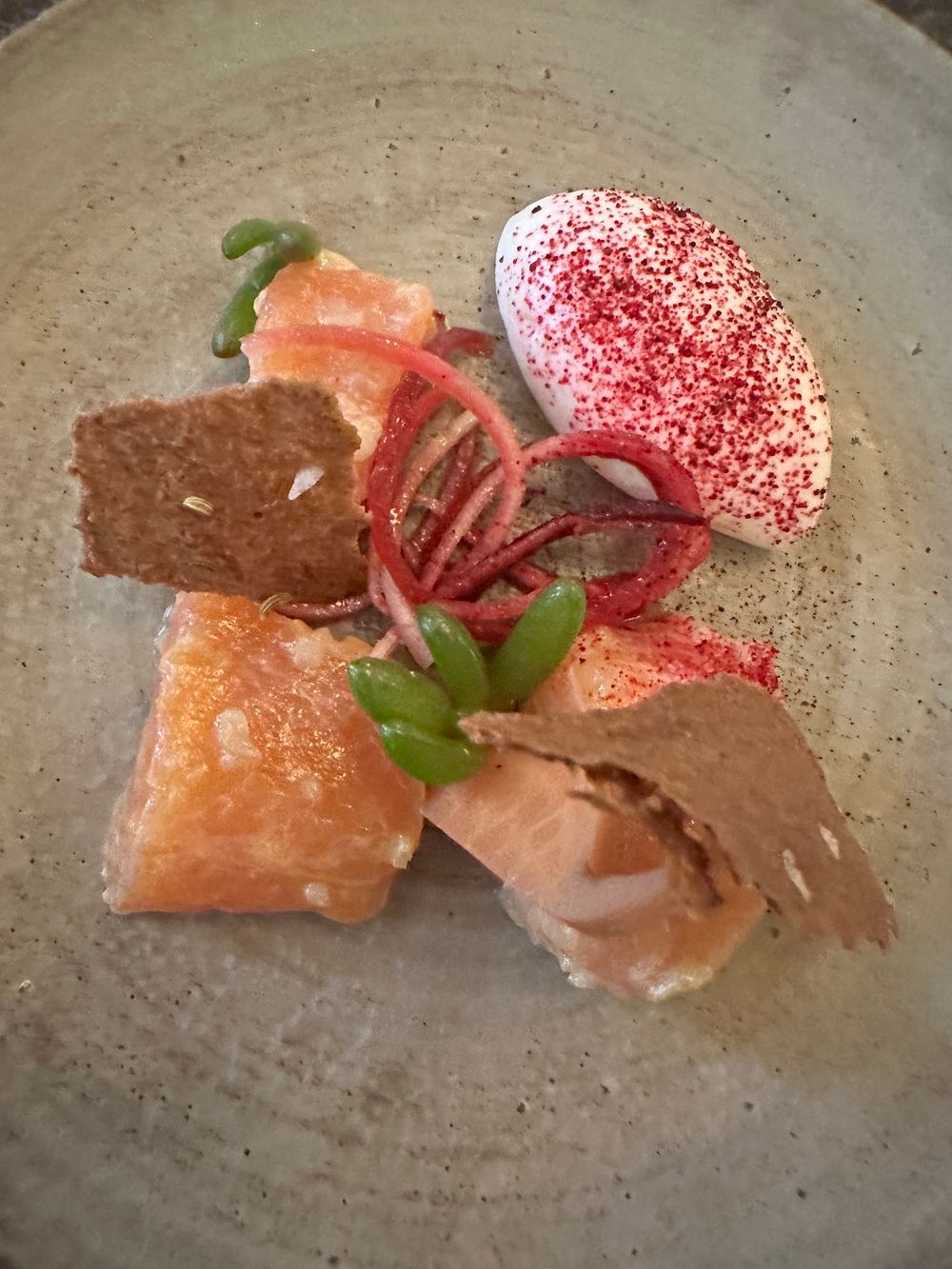
Apricity offers an innovative, sustainable, locally-sourced, no-waste ethos, with Oddbird’s wines on its list.
New technology
“Oddbird has a philosophy that’s unique and different. I found that I actually knew the wines, the winemakers … technology has caught up and it is now possible to remove the alcohol very gently,” he assures us.
Oddbird uses a process of vacuum distillation where a vinified wine is heated to around room temperature, its boiling point reduced by the effect of the vacuum allowing alcohol to evaporate without the liquid being cooked. Unlike more aggressive methods of de-alcoholisation, such as centrifugal separation or reverse osmosis, the process is said to preserve key aroma and flavour compounds.
Founded a decade ago in Gothenburg, Oddbird was the brainchild of Moa Gürbüzer, a social worker who had seen the impact of alcohol abuse on the families in her care. Remarkably, despite having no previous experience of drinks production, she set out to create a wine that was ‘liberated from alcohol’ (the company’s slogan), with a greater ambition to change societal norms.
“We wanted to change our drinking culture so that the question ‘would you like your wine with or without alcohol?’ could become normalised,” says Moa’s son Mehmet, who now works alongside his mother as chief operating officer. “To change minds, we had to start with the quality of the liquid, so we began to perfect our technique for the de-alcoholisation process. We wanted to keep the wine characteristics, so we were looking for high acidity and minerality, always retaining a sense of the terroir.”
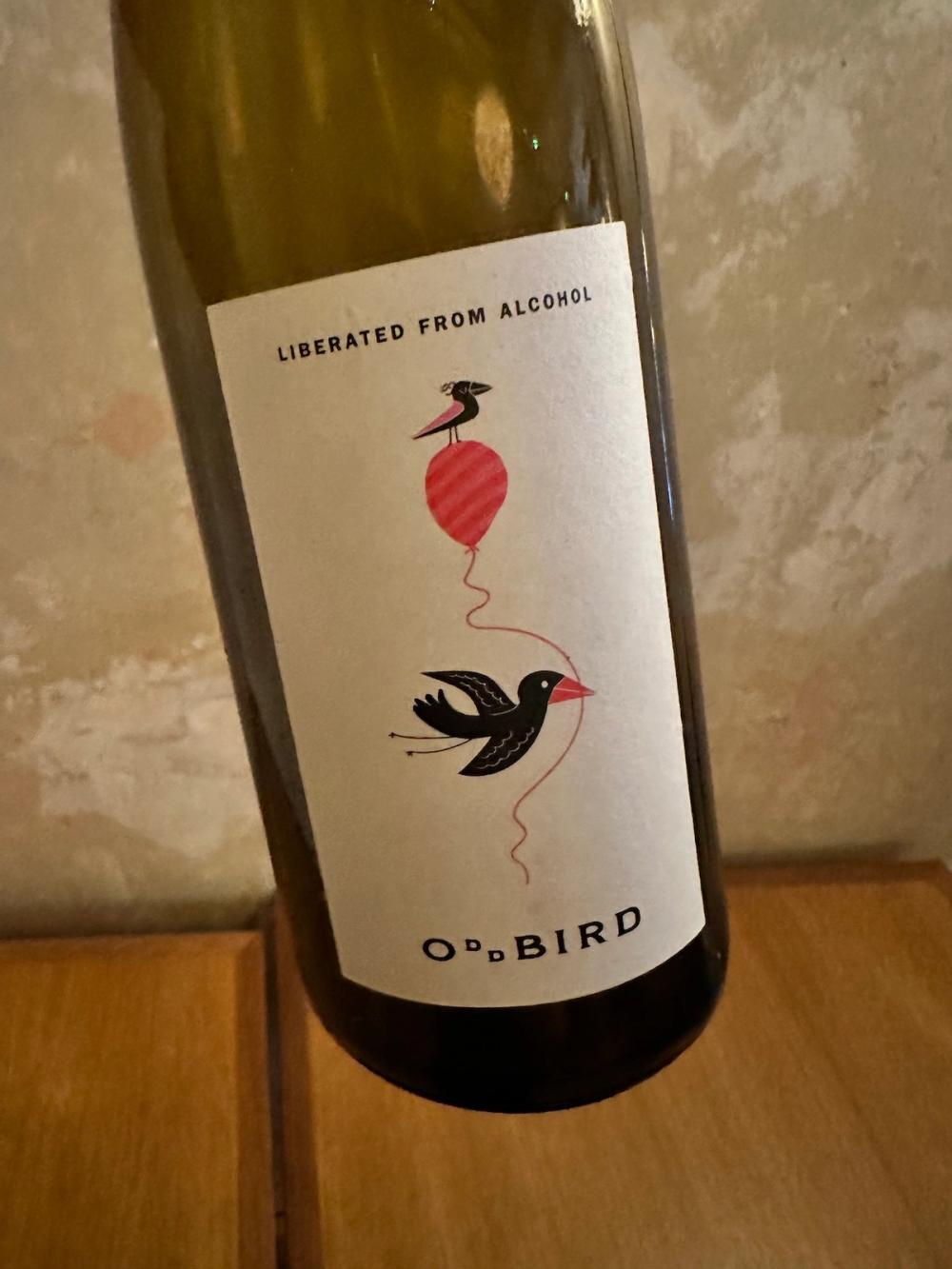
Oddbird’s philosophy is firmly focused on producing recognisable wine with varietal character
Working closely with winemakers
Clearly relishing a challenge, Oddbird began by selling a small consignment of its wines to the Swedish government’s alcohol monopoly – at twice the price of their nearest equivalent. The wines were a hit, orders were increased, expansion then followed, and the brand now produces around two million bottles per year, exporting to twenty different countries, with a core range of six wines complemented by a rolling roster of four limited edition cuvées. Launched in the UK at the start of the pandemic, it has seen annualised growth of around 70% here, although the USA is now its biggest market.
Rather than dealing in generic bulk wine, as some competitors do, the team works closely with established winemakers in their regions, the completed wines then transported to Germany to undergo vacuum distillation: “Ten years ago everyone laughed at us and it was very difficult to find partner wineries to work with, while now we get invitations on a weekly basis,” Gürbüzer says.
They’re not laughing now, because Oddbird’s philosophy is firmly focused on producing recognisable wine with varietal character, rather than creating an alternative beverage. “We feel we have failed if you cannot tell where the wine is from and what the grape variety is,” he tells us, teasingly, as we begin our tasting.
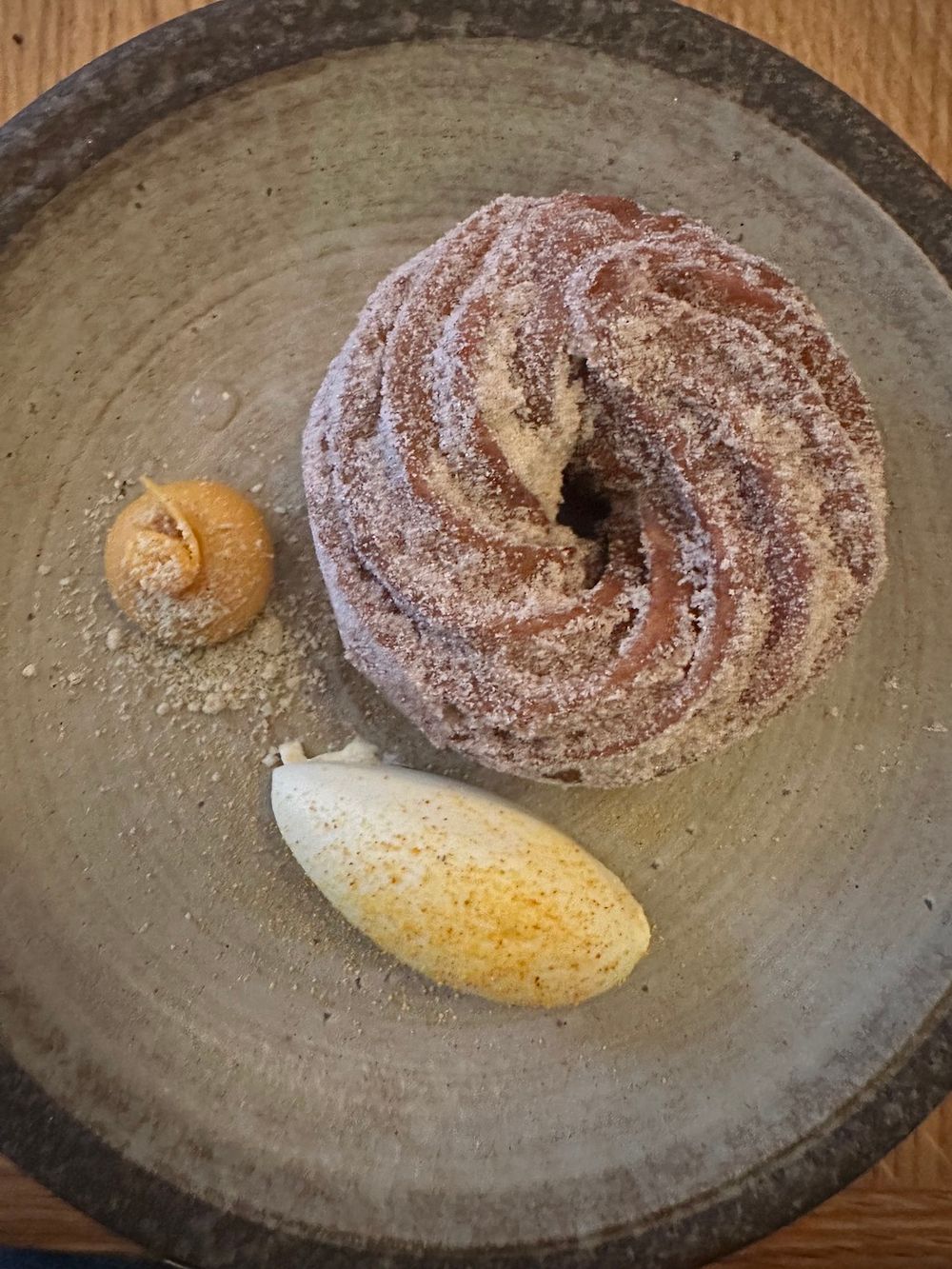
Oddbird Sparkling Rosé was paired with chouxnut’ (a fusion of doughnut and choux pastry), with burnt honey & pumpkin custard
The taste test
Chosen to host the event, Apricity is the latest launch from award-winning New Zealand chef Chantelle Nicholson, a former protegée of Marcus Wareing, who oversaw Covent Garden institution Tredwells, followed by the perky pandemic pop-up, All’s Well, in Dalston. Apricity opened its doors in Mayfair just under two years ago, offering an innovative, sustainable, locally-sourced, no-waste ethos, with Oddbird’s wines on its list.
First up, served alongside some delicious appetisers, Oddbird Spumante Sparkling Wine (RRP £13) is basically a Prosecco without the alcohol. 100% Glera, from DOC and DOCG vineyards, delicate and pear-driven with a little honeydew melon for good measure. Crucially, it was not sweet or remotely cloying – levels of residual sugar, across the range, average between 3.5 and 4.5 grammes per litre – but rather, it’s crisp and fresh, though admittedly rather short. I have tasted regular Prosecco a lot worse than this.
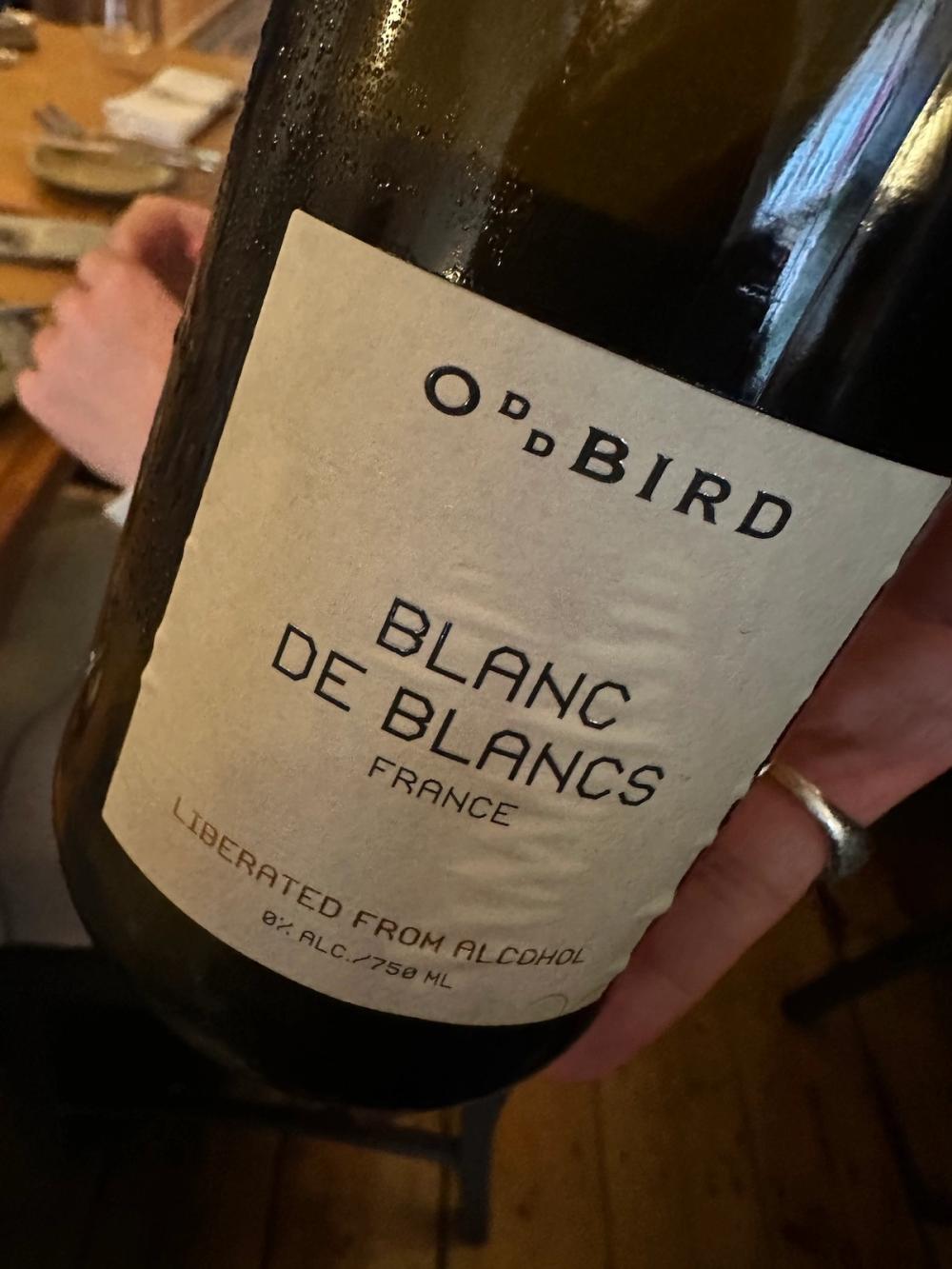
Next, Oddbird Blanc de Blancs Sparkling Wine (RRP £14) is best described as an alcohol-free rival for Crémant, sourced from south-eastern France, and it was really rather good, with the acidity to cut through a delicious fleshy cut of makrut-lime-cured trout. A mix of Chardonnay and Colombard, there’s a plush golden apple, Comice pear, a satisfying hint of shortcrust pastry and a rounded finish that holds for a good few seconds. Gürbüzer tells me there’s a sparkler from the Champagne region in the pipeline this year, from an established producer, though he says he may “end up in jail” as alcohol-free Champagne is not permitted by the rules. It’ll be interesting to see how that pans out.
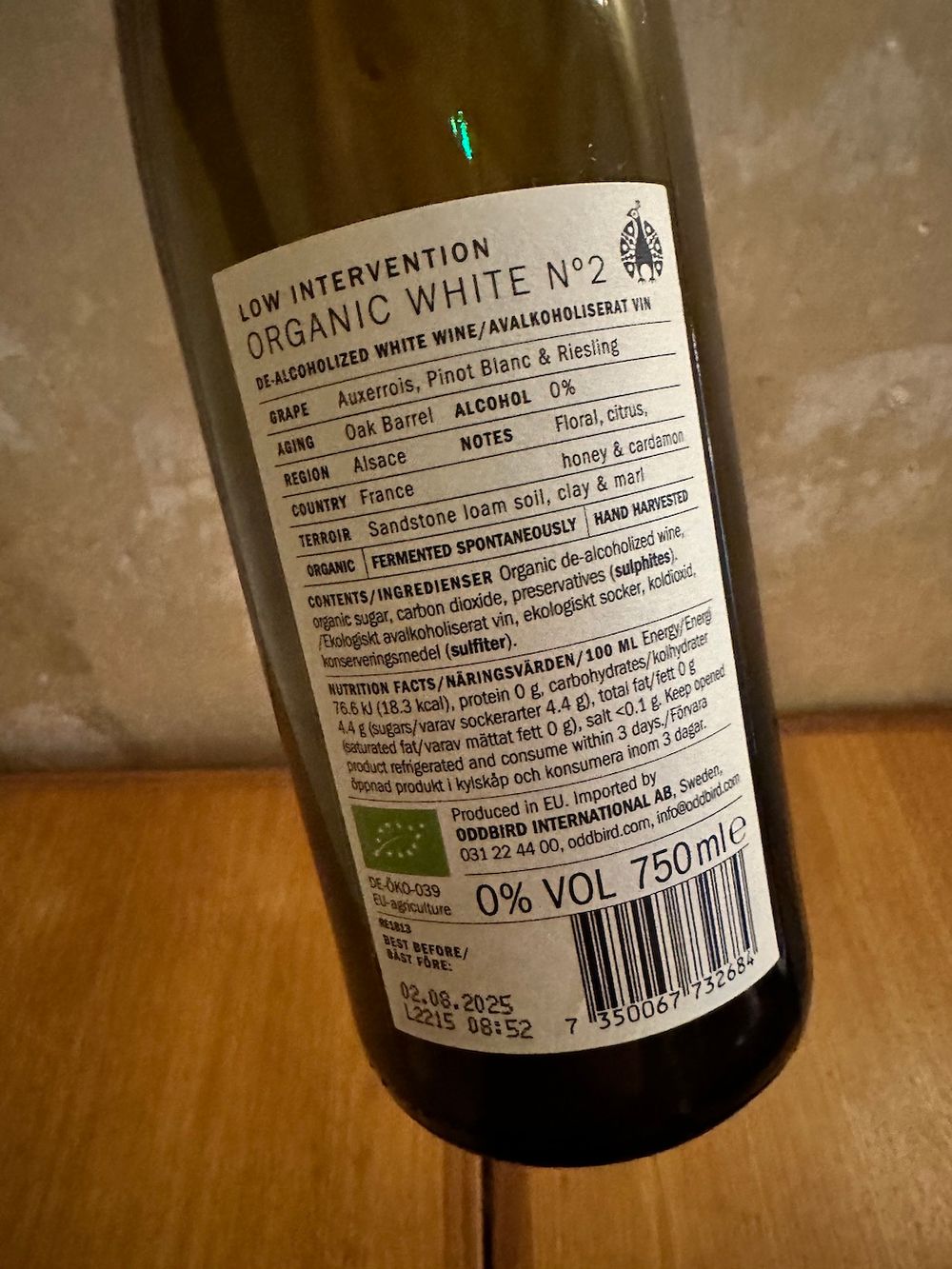
Oddbird No 2 Low Intervention Alcohol Free Wine (RRP £18.50) is sourced from a low-intervention winemaker in Alsace and it was the standout star of the tasting for me. An ambitious blend of Auxerrois, Pinot Blanc and Riesling, the latter variety makes its presence felt the most, with a fresh, steely nose melding summer blossom with a beguiling flintiness. On the palate, the wine offered plenty of citrus, notes of ripe peach and a subtle minerality that tends to a slight saltiness. A serious wine, for a wine without any alcohol, it was perfectly paired with a truly transcendent salad of hydroponic-farmed lettuce, crispy kale and herbs.
Oddbird GSM Red Wine (RRP £15), from Saint-Chinian, is a 2020 blend of Grenache, Syrah, Mourvèdre, and Carignan that offers a red-fruited, plum driven nose that immediately speaks of its source. On the palate, there’s plenty of evident tannin, illustrating the versatility of the vacuum distillation process, but the wine didn’t quite do it for me, I’m afraid, as it lacked mid-palate weight, leaving just a faintly spicy, slightly flat berry fruitiness. The wine undergoes some maturation, but it needs more oomph. That said, it did pair quite well with a juicy cut of bavette, served with the most amazingly flavoursome roasted potatoes that I have ever encountered.
To round off, Oddbird Sparkling Rosé (RRP £14) was chosen to pair with Nicholson’s signature pudding, the ‘chouxnut’ (a yummy fusion of doughnut and choux pastry), with burnt honey & pumpkin custard. I am notoriously picky about rosé sparklers, so I was secretly rather dreading this, but I was wrong to be apprehensive for this combination of Pinot Noir and Chardonnay was fresh, strawberry/cherry-charged, with a crunchy cranberry acidity and not so much as a hint of sickly sweetness. This could outclass a number of its alcoholic sparkling rosé rivals and that’s no mean feat. Oddbird wants to change the world and I think it really stands a chance.
Oddbird wines are distributed and sold in the UK by Alliance Wine which is a Buyer commercial partner. To discover more about them click here.
